Paper
For submission of articles or Working Papers to CEsA, please send an email to:
comunicacao@cesa.iseg.ulisboa.pt
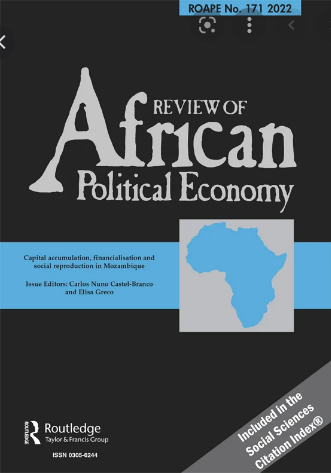
Financialization, narrow specialization of production and capital accumulation in Mozambique
In post-independence Mozambique, national capitalism developed from the ashes of state-centred accumulation built around the dominant social structures of production that were inherited from colonialism. These very specific historical conditions weighed heavily on the structures of accumulation, which later were subjected to neoliberal economic reforms, becoming heavily dependent on inflows of private international finance and resulting in growing financialisation of the economy and of the state, alongside increasingly narrow specialisation of production. Narrow specialisation, also called primarisation, consists in the reduction of the number of industries, sectors, activities and products; the concentration of production and trade around a smaller range of primary commodities for export; increasingly basic and simple production processes, products and levels of processing and articulation; and fewer options and capabilities to promote linkages. In turn, financialisation and primarisation reinforced each other in an increasingly speculative mode of accumulation. Starting from the specific analysis of the historical logic of the mode of capital accumulation in Mozambique (Castel-Branco, 2022), Financialization, narrow specialization of production and capital accumulation in Mozambique by Carlos Nuno Castel-Branco and Diogo Maia will demonstrate the dynamics of financialisation and of the growing primarisation of production, and the connection between the two.
Abstract:
The article argues that the historical conditions under which national capitalism developed in post-independence Mozambique pushed the economy towards growing financialisation and narrower specialisation of production around increasingly basic and simple activities. The paper argues that changing these dynamics of accumulation requires conscious industrial strategies focused on diversification and articulation of production, which cannot be achieved without challenging the extractive mode of accumulation and the power relationships associated with it.
Quotation:
Castel-Branco, Carlos Nuno; and Diogo Maia. 2022. “Financialization, narrow specialization of production and capital accumulation in Mozambique”. Review of African Political Economy, VOL. 49, NO. 171, 46-66 https://doi.org/10.1080/03056244.2022.2049143
Access the article here.

Mozambique – neither miracle nor mirage
Mozambique – neither miracle nor mirage by Carlos Nuno Castel-Branco and Elisa Greco explores how over two decades, in the 1990s and 2000s, international organisations, development cooperation agencies, financial institutions and the media often described the Mozambican economic, social and political trajectory as a ‘miracle’. Hailed as the ‘rising star’ of Africa in 2005 by the New York Times (2005) and by The Economist, the country has long been praised by neoliberal institutions as a model reformer, open and attractive to foreign direct investment (FDI), and for its high rates of economic growth, soaring primary commodity exports and one-digit inflation. While a milder version of this image of a Mozambican ‘miracle’ persisted throughout the 2010s, it started to clash with the reality of worsening inequality, poverty and crisis in social reproduction, as well as the emergence of the first clear signs of a debt crisis yet to come. In the main cities, violent riots triggered by rising costs of basic wage goods and services, over and above average inflation, erupted in February 2008 and again in September 2010. In September 2010, The Economist described these riots as the revolt of the ‘angry poor’, which did not deter international financial think tanks and media from continuing to emphasise the Mozambican ‘miracle’ (The Economist 2010). The country saw the contradiction of worsening poverty, high aid dependency and inequality at the same time as it was being described by the Financial Times as ‘at the centre of unprecedented international investor attention’ (Financial Times 2012, 2010). In May 2014, in her speech to the Africa Rising conference held in Maputo, IMF Managing Director Christine Lagarde highlighted Mozambique’s impressive performance with respect to economic growth as being the result of decades of institution building and sound macroeconomic management, which justified the IMF’s formal permission for Mozambique to obtain new loans on non-concessional terms (Orre and Rønning 2017). Two years later, in 2016, The Economist highlighted the country’s soaring sovereign debt in a context of increasing FDI and aid inflows, and the creditworthiness of the Mozambican economy was downgraded by credit rating agencies from stable average, where it had been from 2003 to 2015, to severe risk of default (Castel-Branco 2020). How can we make sense of this somehow contradictory information? Is Mozambique a ‘miracle’ or a ‘mirage’?
Abstract:
Editorial of the special issue of the Review of African Political Economy (RoAPE), titled “Capital accumulation, financialisation and social reproduction in Mozambique”, volume 49, number 171, March 2022.
Quotation:
Castel-Branco, Carlos Nuno; and Elisa Greco. 2022. “Mozambique – neither miracle nor mirage”. Review of African Political Economy, VOL. 49, NO. 171, 1-10, https://doi.org/10.1080/03056244.2022.2047297
Access the article here,

The historical logic of the mode of capital accumulation in Mozambique
This article by Carlos Nuno Castel-Branco investigates the historical logic of the mode of capital accumulation in Mozambique. By historical logic we mean the objective explanation of the specific characteristics based on an understanding of the country’s historical foundations, and the conflicts and tensions within and related to its structures of accumulation.
Abstract:
This article critically analyses the political economy dynamics and trajectory of the mode of capital accumulation in post-independence Mozambique, focusing on the capitalist restructuring that followed the adoption of the Washington Consensus from the late 1980s. The article highlights the main structural characteristics, dynamics and tensions in the economy, the relationships and conflicts that explain why they reproduce and expand, what makes them change and the nature of the crises that emerge. The argument is that the recent trajectory of the Mozambican economy was not inevitable, and that it can be logically understood and derived from the existing historical conditions of accumulation. Understanding this historical logic enables us to articulate socially transformative actions which are drawn from the objective and concrete analysis of the mode of accumulation and its contradictions, countering idealistic perspectives in political economy.
Quotation:
Castel-Branco, Carlos Nuno. 2022. “The historical logic of the Mode of Capital Accumulation in Mozambique”. Review of African Political Economy, VOL. 49, NO. 171, 11–45 https://doi.org/10.1080/03056244.2022.2040225
Access the article here.
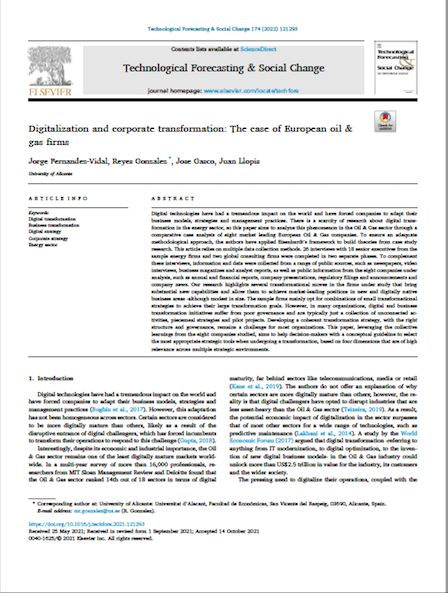
Digitalization and Corporate Transformation: the case of European oil & gas firms
Digitalization and corporate transformation: The case of European oil & gas firms by Jorge Fernandez-Vidal, Reyes Gonzalez, Jose Gasco e Juan Llopis, leveraging the collective learnings from the eight companies studied, aims to help decision-makers with a conceptual guideline to select the most appropriate strategic tools when undergoing a transformation, based on four dimensions that are of high relevance across multiple strategic environments.
Abstract:
Digital technologies have had a tremendous impact on the world and have forced companies to adapt their business models, strategies and management practices. There is a scarcity of research about digital transformation in the energy sector, so this paper aims to analyze this phenomenon in the Oil & Gas sector through a comparative case analysis of eight market leading European Oil & Gas companies. To ensure an adequate methodological approach, the authors have applied Eisenhardt’s framework to build theories from case study research. This article relies on multiple data collection methods. 26 interviews with 18 senior executives from the sample energy firms and two global consulting firms were completed in two separate phases. To complement these interviews, information and data were collected from a range of public sources, such as newspapers, video interviews, business magazines and analyst reports, as well as public information from the eight companies under analysis, such as annual and financial reports, company presentations, regulatory filings and announcements and company news. Our research highlights several transformational moves in the firms under study that bring substantial new capabilities and allow them to achieve market-leading positions in new and digitally native business areas -although modest in size. The sample firms mainly opt for combinations of small transformational strategies to achieve their large transformation goals. However, in many organizations, digital and business transformation initiatives suffer from poor governance and are typically just a collection of unconnected activities, piecemeal strategies and pilot projects. Developing a coherent transformation strategy, with the right structure and governance, remains a challenge for most organizations. This paper, leveraging the collective learnings from the eight companies studied, aims to help decision-makers with a conceptual guideline to select the most appropriate strategic tools when undergoing a transformation, based on four dimensions that are of high relevance across multiple strategic environments.
Quotation:
Jorge Fernandez-Vidal, Reyes Gonzalez, Jose Gasco, Juan Llopis, Digitalization and corporate transformation: The case of European oil & gas firms, Technological Forecasting and Social Change, Volume 174, 2022, 121293, ISSN 0040-1625

Itinéraires de Kamba Simango: dialogue entre un Mozambicain apprenti ethnographe et Franz Boas
Itinéraires de Kamba Simango: dialogue entre un Mozambicain apprenti ethnographe et Franz Boas by Lorenzo Macagno explores the dialogue between anthropologist Franz Boas and Kamba Simango. It also analyses the ethnographic relationship between them and Simango’s cosmopolitan trajectory.
Abstract:
This paper explores the dialogue between anthropologist Franz Boas and Kamba Simango. Simango was born in 1890, in Machanga District, on the coast of present-day Mozambique. In 1914, under the auspices of missionaries of the American Board of Missions, he was sent to the United States to study at the Hampton Institute. Kamba Simango and Franz Boas met for the first time in 1919 at Columbia University. Boas did not want Simango to become a mere “informant,” but a native ethnographer. Based on an exchange of unpublished letters and a series of documents published mainly by missionaries, this article analyzes the ethnographic relationship between Boas and Simango as well as his cosmopolitan trajectory. Kamba Simango’s life and career help us to understand the colonial experience par le bas, and to understand the construction of subjectivities and specific historicities from a less nation-centered perspective.
Quotation:
Lorenzo Macagno, « Itinéraires de Kamba Simango : dialogue entre un Mozambicain apprenti ethnographe et Franz Boas », Cahiers d’études africaines, 244 | 2021, 831-858. URL: https://www.repository.utl.pt/handle/10400.5/22949
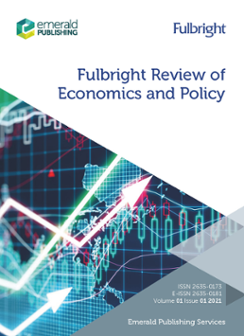
Common Causes in Grassroot Development: a case for community-based and communitydriven response in the postpandemic era
The purpose of Common Causes in Grassroot Development: a case for community-based and communitydriven response in the postpandemic era by Vincent Agulonye is to determine the impact of community-based and driven approaches during the lockdowns and early periods of the pandemic. The study examines the impact and perceptions of the state-led intervention. This would help to discover a better approach for postpandemic interventions and policy responses.
Abstract:
The purpose of Common Causes in Grassroot Development: a case for community-based and communitydriven response in the postpandemic era is to determine the impact of community-based and driven approaches during the lockdowns and early periods of the pandemic. The study examines the impact and perceptions of the state-led intervention. This would help to discover a better approach for postpandemic interventions and policy responses. This article used the inductive method and gathered its data from surveys. In search of global opinions on COVID-19 responses received in communities, two countries in each continent with high COVID-19 infection per 100,000 during the peak period were chosen for study. In total, 13 community workers, leaders and members per continent were sampled. The simple percentile method was chosen for analysis. The simple interpretation was used to discuss the results. Findings – The study showed that poor publicity of community-based interventions affected awareness and fame as most were mistaken for government interventions. The study found that most respondents preferred state interventions but preferred many communities or local assessments of projects and interventions while the projects were ongoing to adjust the project and intervention as they progressed. However, many preferred community-based and driven interventions. Research limitations/implications – State secrecy and perceived opposition oppression limited data sourcing for this study in countries where state interventions are performed in secret and oppression of perceived opposition voices limited data collection in some countries. Thus, last-minute changes were made to gather data from countries on the same continent. An intercontinental study requires data from more countries, which would require more time and resources. This study was affected by access to locals in remote areas where raw data would have benefited the study.
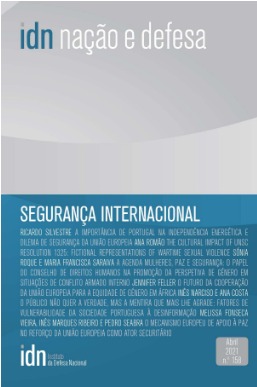
O Mecanismo Europeu de Apoio à Paz no Reforço da União Europeia como Ator Securitário
Authored by Melissa Fonseca Vieira, student of the Masters in Development and International Cooperation, Inês Marques Ribeiro and Pedro Seabra, O Mecanismo Europeu de Apoio à Paz no Reforço da União Europeia como Ator Securitário reflects on the European Union and how it has sought to strengthen its capabilities to promote conflict prevention.
Abstract:
In a volatile global context, the European Union has sought to strengthen its capabilities in order to promote conflict prevention, peace-building and the strengthening of international security. However, although it currently has mechanisms for crisis management and conflict prevention, these have not been sufficient or fully effective. The European Peace Facility (EPF) has emerged as an attempt to consolidate the EU’s role as a global security actor, through the direct financing of military operations. O Mecanismo Europeu de Apoio à Paz no Reforço da União Europei analyses its creation and the role it is expected to play in the context of the CSDP, providing the necessary framework within the framework of previous similar experiences. Despite the challenges imposed by its creation, the APRM represents a strong commitment by the EU to consolidate peace and strengthen security at global level.
This article was published in ISCTE-IUL’s repository. To access, click here.
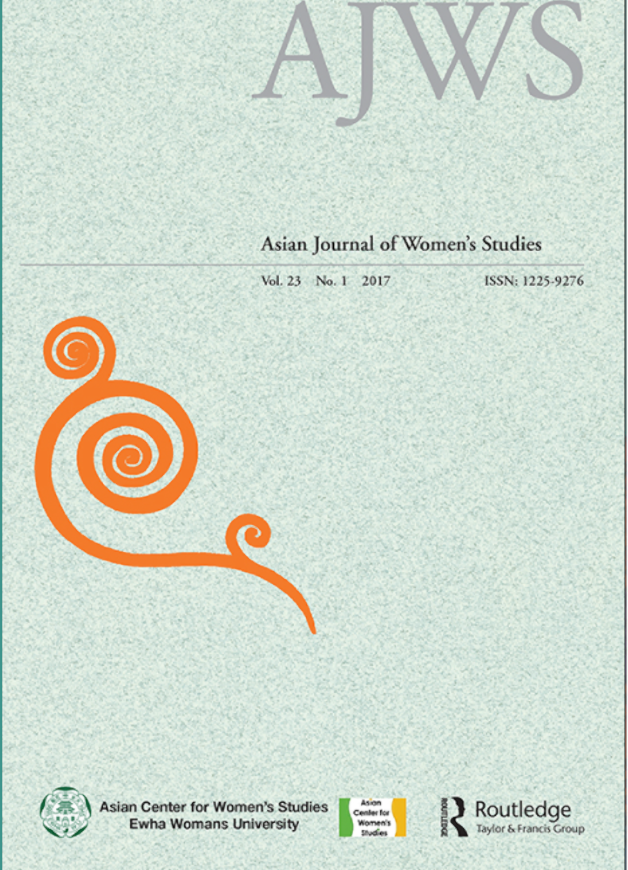
Impact of emergency cash assistance on gender relations in the tribal areas of Pakistan
The most recent article by Asif Igbal Dawar with Marcos Ferreira, Impact of emergency cash assistance on gender relations in the tribal areas of Pakistan (2021), is one of six articles he published throughout his doctoral research.
Abstract:
Impact of emergency cash assistance on gender relations in the tribal areas of Pakistan seeks to make a contribution to the discussion on the consequences of social change brought about by relief programs in humanitarian contexts. It examines the extent to which the Unconditional Cash Transfer (UCT) program (2014–2016) in the Pakistani tribal district of North Waziristan (NW) has influenced patriarchal gender norms in the region, in transforming perceptions about what men and women can do and on changing gender relations. Through interviews conducted in the field between 2017 and 2019, we examine the positive, albeit limited, impact on society and conclude that our study enabled a better understanding of micro practices and processes that challenge the patriarchal structure of society and the norms that sustain it. We illustrate how such processes have started to influence patriarchal norms by improving women’s status both at home and in the community, eventually leading to a shift in traditional perceptions and constructions of gender relations. Although these changes do appear significant, gender equality will continue to face tough challenges in the region and its consolidation depends on the collective efforts of development stakeholders to support unconditional, gender sensitive relief programs that transcend immediate humanitarian and post-humanitarian concerns.
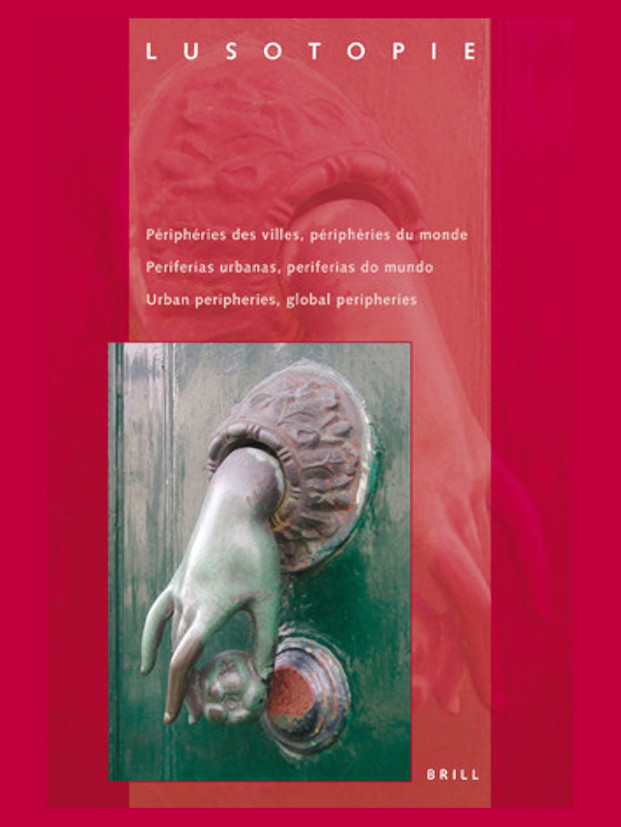
Modern Intimacies and Modernist Landscapes: Chinese Photographs in Late-Colonial Mozambique
Authored by Lorenzo Macagno, Modern Intimacies and Modernist Landscapes: Chinese Photographs in Late-Colonial Mozambique addresses a specific aspect of the social and cultural life of the Portuguese-Chinese in Mozambique. The first contingents, coming from the Chinese province of Guangdong, began to arrive in that region of East Africa in the second half of the 19th century.
Abstract:
Modern Intimacies and Modernist Landscapes: Chinese Photographs in Late-Colonial Mozambique addresses a specific aspect of the social and cultural life of the Portuguese-Chinese in Mozambique. The first contingents, coming from the Chinese province of Guangdong, began to arrive in that region of East Africa in the second half of the 19th century. Most settled in the city of Beira. By the 1950s, the Chinese community was already well integrated into modern life in the colonial Beira. The city was undergoing an unprecedented urban and architectural ebullition. In that period, the Luso-Chinese, in their capacity as merchants, also began to stand out in the field of photography. Based on a multi-sited research among the Luso-Chinese in the diaspora – and their family photo albums – this article reflects on two inseparable aspects of late-colonial modernity: architecture and photography.
Access this article, published in the University of Lisbon’s Repository, here.
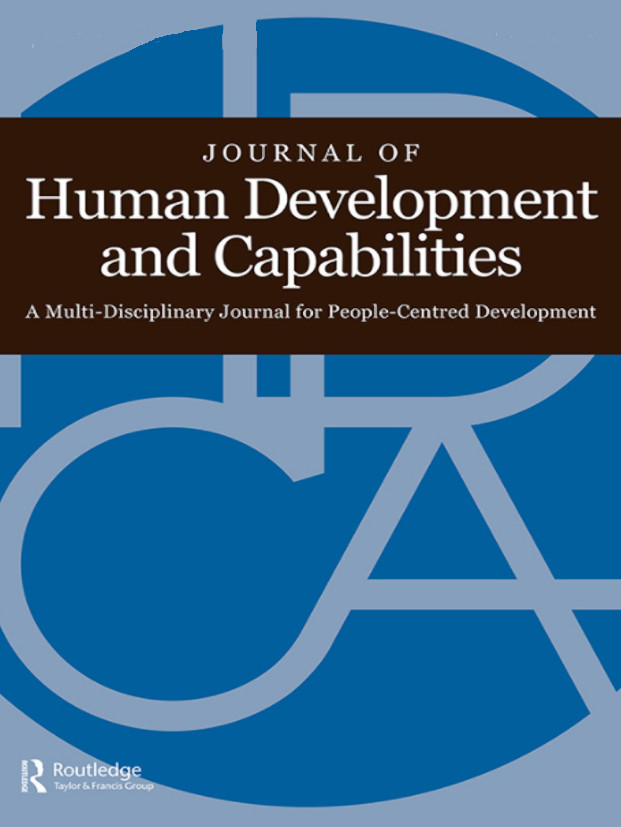
On the Nature and Determinants of Poor Households’ Resilience in Fragility Contexts
Authored by Christophe R. Quétel, Guy Bordin, Alexandre Abreu, Ilektra Lemi & Carlos Sangreman, On the Nature and Determinants of Poor Households’ Resilience in Fragility Contexts published in the Journal of Human Development and Capabilities – Taylor & Francis Online (31 May 2021) – focuses on the resilience of placed populations in the face of great adversity.
Abstract
Several global policy frameworks focus on managing (risks of) disasters affecting broad populations. In those frameworks resilience is a conceptualisation that possibly has important ideological implications. It is often opposed to fragility, and used to validate the notion of recurring insecurity, promote individual adaptability almost in the form of an obligation, and push the idea that crises/catastrophes are opportunities for profound changes. While effects from the COVID-19 pandemic have brought the protective role of the state to the fore, applying the word resilience to poor people requires clarification, especially in contexts of weak state public services and because assessment of complex poverty situations too often remains oversimplified and error-prone. We argue that to build capacity for resilience poor households need policies that protect and help them out of poverty, and that policy-making processes require engagement with people. Individuals must be asked about their perceptions and management of risks and threats, both in daily life and under exceptional circumstances, especially if the resulting stress factors accumulate and interact. This socially informed, place-specific, and multi-level approach could contribute substantially to identifying interventions, reducing poverty and poverty related risks, enhancing well-being and promoting development and cooperation programmes that meet people’s expectations.





